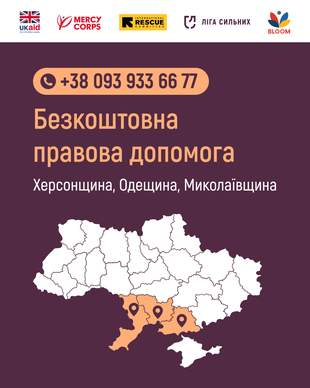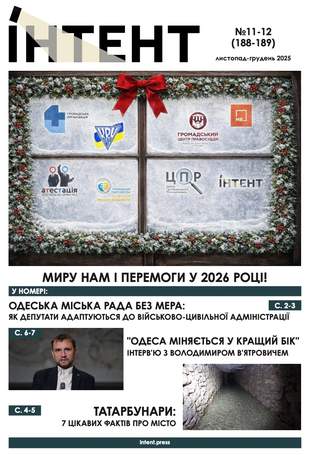Меню
Соціальні мережі
Розділи
Dec. 14, 2024, 11:27 p.m.
"Self-awareness is the first step to mental health," psychologist Kateryna Chernova
This article also available in English193

Photo provided by the interviewee
Kateryna Chernova, director of the World to Ukrainians charity foundation, started organizing retreats to improve people's quality of life nine years ago. After the full-scale invasion, she returned to this activity on a permanent basis, implementing a large-scale project to provide psychosocial support to people in helping professions. In 2024 alone, it reached three hundred participants from Kherson, Mykolaiv, and Zaporizhzhia regions. Intent had an exclusive conversation with psychologist and public figure Kateryna Chernova.
Kateryna, tell us about your project. How did you come up with the idea and what is the purpose of these retreats?
This project started in Zaporizhzhia because I am from there. After February 24, 2022, a shelter for internally displaced persons was created in the city by volunteers and partner organizations. I won't describe all those activities, but I will say that we were with these people around the clock. It was getting harder and harder to meet war victims with their stories of pain and grief.
The volunteers who had the desire and aptitude for this work began to burn out from the amount of work. Then I remembered the retreats I had organized before, gathered all the knowledge and experience of previous years, and began to implement an idea that worked really well.
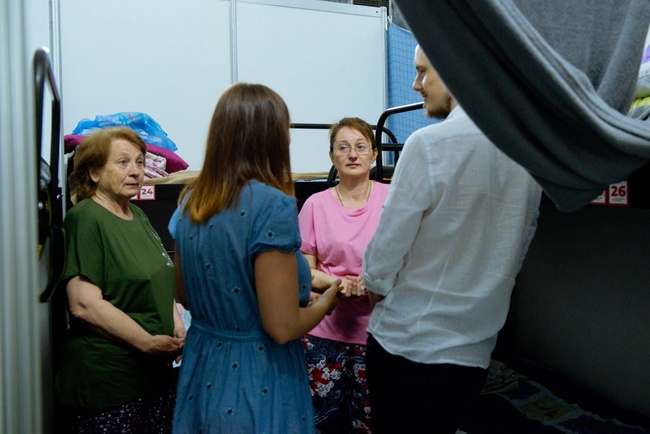
In a shelter for IDPs. Photo provided by the interviewee
I managed to find ways to restore the psycho-emotional state of different people. And also, to provide them with tools to take care of themselves and their mental health. And most importantly, to overcome their false beliefs about mental health and dispel myths about psychologists.
The project has literally "grown". At the same time, attention was paid to people in helping professions. Why is that?
Indeed. While in 2023, about 170 volunteers of various professions from Zaporizhzhia took part in the retreats, in 2024, three hundred people from Kherson, Mykolaiv, and Zaporizhzhia regions took part. These were not only volunteers, but also rescuers, doctors, journalists, representatives of local governments, educators, and cultural workers. All these specialists are among the first to be at the sites of shelling, to record the deaths or damage, and to communicate with the victims. That is why it is so important that they remain balanced and stable. Their work ensures resilience in regions, communities, and institutions.
What challenges do professionals in these fields face?
I think the main challenge for people in helping professions is their emotional exhaustion. Because they are constantly risking their own health and lives. Unfortunately, there are many examples of repeated attacks on the places of arrival. Understanding this creates a constant tension that affects the physical and psychological aspects. This has consequences ranging from reduced productivity to severe depression. Signs of burnout include constant extreme fatigue, social rejection, loss of zest for life, and loss of motivation.
The separation from the frontline regions gave the participants the opportunity to fully immerse themselves in an atmosphere of peace and security, and as a result, to realize their emotional needs and find resources for recovery. The retreat's length also allowed them to not only relax physically but also work through their inner feelings. It is impossible to do this in a short period of time. The human psyche needs time and consistency to change.
How did people react to the trip itself? Because now you can hear from residents of the frontline regions that they do not feel well outside of them.
This is a normal, natural reaction for anyone who travels outside their home. The point here is not the security of the region, but the fact that the place of residence is part of a person's identity. And when they leave it, they feel alienated and anxious. They also feel guilty about leaving their loved ones or that they could have been more useful here. This is compounded by the need to adapt to a new environment, which requires significant resources. Taken together, this makes a person experience anxiety with all the corresponding emotions.
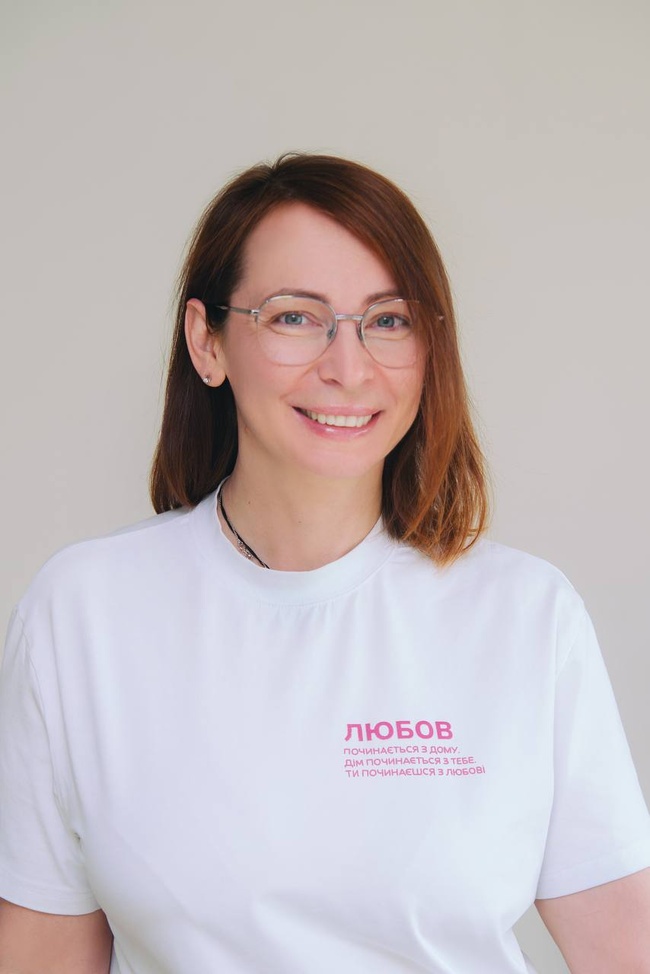
Kateryna Chernova. Photo provided by the interviewee
Among the tips here, I would like to emphasize: do not withdraw, but look for support in the environment. It is not for nothing that support groups are still being created for IDPs within Ukraine and for refugees abroad. However, if this tension does not go away for a long time, if there are bodily reactions to some stimuli that are difficult to regulate and psychosomatic symptoms arise, then I would advise you to seek help from specialists.
Currently, people in helping professions have irregular schedules and are ready to go 24/7. Does this have consequences for mental health?
The boundaries between professional and personal life are blurred, as people unconsciously look for a way to escape from stress in their work. I often observed this among the project participants. The desire to constantly do more than the circumstances demanded became a kind of mechanism for them to avoid their own experiences.
"I'm not doing enough," "I need help," "I need to take on even more tasks," are all signs of a threat when the boundaries are literally blurred and work becomes the meaning of life. At the same time, a person may feel "good" because of the illusion that they have conditional control at work. Familiar patterns of action and clear plans create a sense of stability. At the same time, personal life is dominated by uncertainty and unpredictability, which seem more difficult to manage.
However, chronic fatigue and accumulated tension are bound to manifest themselves, in different ways. Usually, this happens too late, when the neglect of mental health has already begun to threaten physical health. To avoid this interconnected impact, it is necessary to recognize the signals of emotional exhaustion mentioned earlier in a timely manner and respond appropriately.
How to respond to stressful events to avoid the psycho-emotional states you mentioned?
The first step is to realize the importance of maintaining mental health. This is the basis for coping with pressure and difficult circumstances. In other words, it's about regaining control, which is undermined by the sense of danger around you. It's a simple matter of stopping in time and asking yourself: "How am I doing now? How do I feel? What is happening to me?". That is, to realize your emotions and name them, thereby taking control of the situation.
You should also realize that avoiding stress is not the answer. It is better to examine your reactions and look for your own ways to cope with stress. In particular, I advise you to create a set of five techniques or exercises and literally "anchor" them - imagine that they are always at hand, on your right or left palm. I would like to emphasize that stress cannot disappear on its own - it must be accepted and dealt with. This is the only way to avoid negative psycho-emotional states in the future.
Another important point is working with a psychologist. In my practice, I often see that it is difficult for people to ask for help, again, because of their own false beliefs. However, a psychologist is a person who can become a support in a crisis, help build an internal foundation, and restore stability step by step. Because going to talk to friends is "OK," but the results can be different. In general, this is a separate topic for communication... I am very glad that our society is currently working, including at the state level, to overcome the stigma of mental health, seeking help from specialists, and the concept of psychology in general.
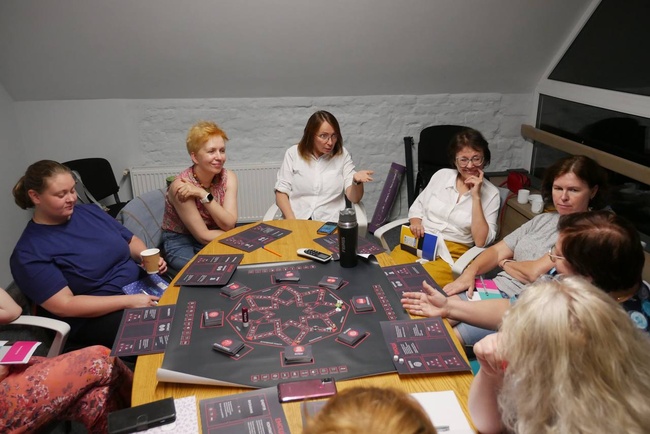
Photo provided by the interviewee
Could you give us some examples of "tools" for self-help with stress?
I would like to emphasize that any reaction to stress is normal. The human defense system reacts to abnormal events individually. Therefore, you should not be afraid of any of your feelings. The main thing is to be aware of them. And in times of stress, first of all, I would advise you to try simple breathing exercises. For example, slow, steady, deep breathing, where the exhalation is longer than the inhalation. This helps to quickly reduce the level of tension in the body: the sympathetic nervous system calms down, and the parasympathetic system is activated.
The second is one of the simple and effective techniques called "Stop, Look, Listen." Its purpose is to take a short pause using the actions indicated in the title. This way, you can reorient yourself, understand what is happening around you, and "choose" a reaction. Thirdly, a physical response to release stress hormones through the body. In particular, shaking like an animal or patting certain parts of the body.
Speaking of chronic stress, it is important to know its signs. These include: increased irritability, apathy, overeating or lack of appetite, sleep disturbances, headaches, muscle tension, etc. How to help yourself? It's very simple and everything is in your hands. It is to follow a daily routine, with phases for good sleep and physical activity, proper nutrition and fluid balance.
You also need to find your own way of relaxing after work. Meditation, a walk in nature, communication with animals, music, drawing, etc. This action should bring pleasure and switch attention so that the brain does not process what it sees or hears, but lets go of these thoughts. Also, allow yourself to make jokes and have fun. This way, the body will release endorphins that help overcome stress.
Why has the topic of mental health become so important during a full-scale war?
Because of the scale. I'll generalize: in times of war, every Ukrainian is in a state of stress, tension, anxiety, and therefore needs support. Long-term bad experiences cause many diseases, both psychosomatic and mental. It is possible to prevent them. To do this, you need to take care of your mental health on a regular basis, understand the value of your own emotional state, monitor and regulate your reactions. Then a person will live a quality life.
In conclusion, I would like to say the following: do not ignore your own needs and take care of yourself as responsibly as people in helping professions take care of others.
Яніна Надточа
